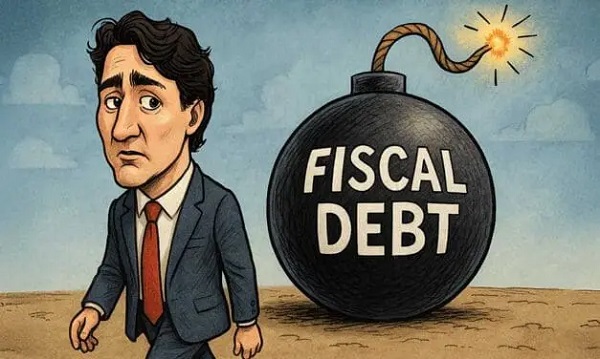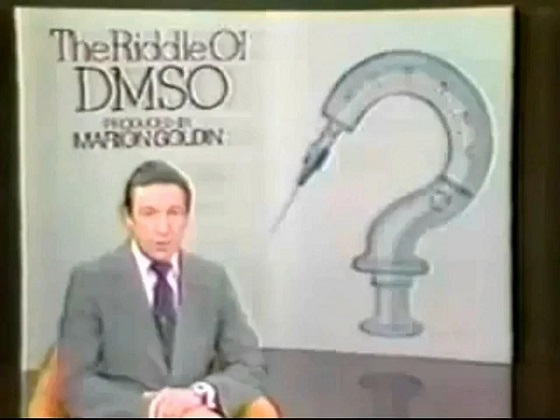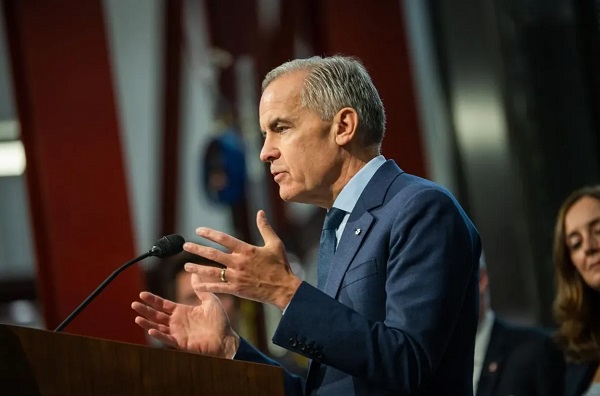Daily Caller
‘The End Of My Dream’: Many Migrants In US-Bound Caravan Lose Hope, Turn Around After Trump Victory

 From the Daily Caller News Foundation
From the Daily Caller News Foundation
The president-elect won roughly 45% of the Latino vote, marking a dramatic increase from the 32% Latino support he garnered in the 2020 presidential election, according to USA Today. He also won Latino men outright, making him the first Republican presidential candidate to do so in U.S. history.
Many migrants have lost hope of illegally crossing into the United States and have decided to turn around after hearing that Republican nominee Donald Trump won the presidential election, according to multiple reports.
A migrant caravan heading for the U.S.-Mexico border has shrunk to roughly half its size as members accepted the fact that Trump would be re-taking the reins at the White House, according to a report from Reuters. An official from Mexico’s National Migration Institute told the outlet that the caravan dwindled to under 1,600 migrants, a sharp drop from its original size of 3,000 when it embarked on its northward journey on Tuesday in the southern Mexican city of Tapachula.
The official added that more than 100 individuals had asked for assistance from authorities on returning to Tapachula, but it’s not entirely clear where the rest of the caravan deserters are headed.
“I had hoped [Vice President Kamala Harris] would win, but that didn’t happen,” said Venezuelan migrant Valerie Andrade, according to Reuters.
Other migrants expressed hopelessness at Trump’s election victory, and even disdain at the historic levels of Latino support the Republican amassed in his landslide win.
“This is the end of my dream of getting out of Cuba,” said Felipe, a Cuban migrant, according to Newsweek.
“They forgot about when they were on the other side,” Mahily Paz, another Venezuelan migrant, said about Latinos who voted for Trump, according to Newsweek. The statement erroneously suggests that most or all Latino Americans are a product of illegal immigration.
Trump emerged victorious early Wednesday morning in the U.S. presidential election, securing more than the 270 electoral votes needed to win the White House. As of Thursday, the president-elect has also remained ahead in the popular vote count, making him the first Republican candidate to win the popular vote since former President George W. Bush was reelected in 2004.
Trump, who made border enforcement a hallmark of his first presidential term, has promised a return to a hawkish immigration policy. The president-elect has vowed to conduct the “largest deportation operation in American history,” a completion of the U.S.-Mexico border wall and a slate of other crackdowns.
While Harris attempted to rebrand herself as more of a hawk on border security on the campaign trail, she could not shake off the perception from voters and would-be illegal migrants that she was the weaker candidate when it came to immigration enforcement.
Trump’s landslide victory on Election Day was driven in large part by growing Latino support, exit polls revealed.
The president-elect won roughly 45% of the Latino vote, marking a dramatic increase from the 32% Latino support he garnered in the 2020 presidential election, according to USA Today. He also won Latino men outright, making him the first Republican presidential candidate to do so in U.S. history.
As of Thursday afternoon, Trump had so far amassed 295 electoral votes and nearly 73 million votes from American citizens.
While many migrants expressed their dismay at the election outcome and chose to turn around, others have chosen to keep gunning for the U.S. border.
“With God’s favor, I’ll get that appointment,” a Venezuelan migrant named Jeilimar said to Reuters, speaking about her appointment to request asylum with U.S. immigration officials via the CBP One app.
Biden administration officials and other immigration workers are bracing for the possibility that Trump’s election victory will spark a rush at the border before he takes office in January, with migrants hoping to make it into the U.S. before an expected border crackdown begins.
Business
Canada is still paying the price for Trudeau’s fiscal delusions

This article supplied by Troy Media.
 By Lee Harding
By Lee Harding
Trudeau’s reckless spending has left Canadians with record debt, poorer services and no path back to a balanced budget
Justin Trudeau may be gone, but the economic consequences of his fiscal approach—chronic deficits, rising debt costs and stagnating growth—are still weighing heavily on Canada
Before becoming prime minister, Justin Trudeau famously said, “The budget will balance itself.” He argued that if expenditures stayed the same, economic growth would drive higher tax revenues and eventually outpace spending. Voila–balance!
But while the theory may have been sound, Trudeau had no real intention of pursuing a balanced budget. In 2015, he campaigned on intentionally overspending and borrowing heavily to build infrastructure, arguing that low interest rates made
it the right time to run deficits.
This argument, weak in its concept, proved even more flawed in practice. Postpandemic deficits have been horrendous, far exceeding the modest overspending initially promised. The budgetary deficit was $327.7 billion in 2020–21, $90.3 billion the year following, and between $35.3 billion and $61.9 billion in the years since.
Those formerly historically low interest rates are also gone now, partly because the federal government has spent so much. The original excuse for deficits has vanished, but the red ink and Canada’s infrastructure deficit remain.
For two decades, interest payments on federal debt steadily declined, falling from 24.6 per cent of government revenues in 1999–2000 to just 5.9 per cent in 2021–22—thanks largely to falling interest rates and prior fiscal restraint. But that trend has reversed. By 2023–24, payments surged past 10 per cent for the first time in over a decade, as rising interest rates collided with record federal debt built up under Trudeau.
Rising debt costs are only part of the story. Federal revenues aren’t what they could have been because Canada’s economy has stagnated. High immigration, which drives productivity down, is the only thing masking our lacklustre GDP growth. Altogether, Canada was 35th among 38 countries in the Organization for Economic Co-operation and Development (OECD) for per capita GDP growth from 2014 to 2022 at just 0.2 per cent. By comparison, Ireland led at 45.2 per cent, followed by the U.S. at 20.8 per cent.
Why should a country like Canada, so blessed with natural resources and knowhow, do so poorly? Capital investment has fled because our government has made onerous regulations, especially hindering our energy industry. In theory, there’s now a remedy. Thanks to new legislation, the Carney government can extend its magic sceptre to those who align with its agenda to fast-track major projects and bypass the labyrinth it created. But unless you’re onside, the red tape still strangles you.
But as the private sector withers under red tape, Ottawa’s civil service keeps ballooning. Some trimming has begun, rattling public sector unions. Still, Canada will be left with at least five times as many federal tax employees per capita as the U.S.
Canada also needs to ease its hell-bent pursuit of net-zero carbon emissions. Hydrocarbons still power the Canadian economy—from vehicles to home heating—and aren’t practically replaceable. Canada has already proven that chasing net zero leads to near-zero per capita growth. Despite high immigration, the OECD projects Canada to have the lowest overall GDP growth between 2021 and 2060.
The Nov. 4 release of the federal budget is better late than never. So would be a plan to grow the economy, slash red tape and eliminate the deficit. But we’re unlikely to get one.
Trudeau may be gone, but his legacy of fiscal recklessness is alive and well.
Lee Harding is a research fellow with the Frontier Centre for Public Policy.
Troy Media empowers Canadian community news outlets by providing independent, insightful analysis and commentary. Our mission is to support local media in helping Canadians stay informed and engaged by delivering reliable content that strengthens community connections and deepens understanding across the country
Business
Trump Raises US Tariffs on Canadian Products by 10% after Doug Ford’s $75,000,000 Ad Campaign


From the Daily Caller News Foundation
President Donald Trump announced Saturday he is increasing U.S. tariffs on Canada by 10%, after the leader of the country’s largest province said he would be pulling an anti-tariff ad — but not until after it could air during Game 2 of the World Series.
Ontario Premier Doug Ford stated Friday his government plans to pull the ad in question after Trump said he was ending trade negotiations with Canada the night before. The spot featured the voice of President Ronald Reagan appearing to sharply criticize “high tariffs” and “protectionist” policy, and used an edited form of remarks the then-president made in an 1987 radio address.
In announcing his intention to pull the ad — which was intentionally broadcast on major networks in American markets — Ford noted he “directed” his team to keep it live until after the second game of baseball’s Fall Classic on Saturday night, a move Trump initially called a “dirty play.” The ad also ran Friday night during Game 1.
Dear Readers:
As a nonprofit, we are dependent on the generosity of our readers.
Please consider making a small donation of any amount here.
Thank you!
Trump then declared Saturday he was going forward with a 10% tariff increase on Canada.
“Their Advertisement was to be taken down, IMMEDIATELY, but they let it run last night during the World Series, knowing that it was a FRAUD,” Trump wrote in a Saturday afternoon Truth Social post. “Because of their serious misrepresentation of the facts, and hostile act, I am increasing the Tariff on Canada by 10% over and above what they are paying now.”
“Canada was caught, red handed, putting up a fraudulent advertisement on Ronald Reagan’s Speech on Tariffs. The Reagan Foundation said that they, ‘created an ad campaign using selective audio and video of President Ronald Reagan. The ad misrepresents the Presidential Radio Address,’ and ‘did not seek nor receive permission to use and edit the remarks. The Ronald Reagan Presidential Foundation and Institute is reviewing its legal options in this matter,’” Trump added in his post, citing an organization dedicated to continuing the late 40th president’s legacy.
“The sole purpose of this FRAUD was Canada’s hope that the United States Supreme Court will come to their ‘rescue’ on Tariffs that they have used for years to hurt the United States,” Trump’s post continues. “Now the United States is able to defend itself against high and overbearing Canadian Tariffs (and those from the rest of the World as well!). Ronald Reagan LOVED Tariffs for purposes of National Security and the Economy, but Canada said he didn’t!”
The ad campaign carried a price tag of $75 million CAD (Canadian), roughly equivalent to $54 million, according to The Associated Press (AP). The taxpayer-funded ad was paid for by Ontario’s provincial government, which the premier leads.
“We’ve achieved our goal, having reached U.S. audiences at the highest levels,” Ford said in a Friday statement reported by AP announcing his plan to pull the ad after Game 2. “Our intention was always to initiate a conversation about the kind of economy that Americans want to build and the impact of tariffs on workers and businesses.”
“I’ve directed my team to keep putting our message in front of Americans over the weekend so that we can air our commercial during the first two World Series games,” the Ontario premier added.
Trump announced Thursday night on Truth Social he was ending trade negotiations with Canada due to the ad.
“Based on their egregious behavior, ALL TRADE NEGOTIATIONS WITH CANADA ARE HEREBY TERMINATED,” the president wrote in the post.
“TARIFFS ARE VERY IMPORTANT TO THE NATIONAL SECURITY, AND ECONOMY, OF THE U.S.A.,” he added [sic].
“High tariffs inevitably lead to retaliation by foreign countries and the triggering of fierce trade wars. Then the worst happens. Markets shrink and collapse,” Reagan’s edited radio message can be heard in the ad, which included a backdrop of mellow music and a video montage of people and landscapes. “Businesses and industries shut down and millions of people lose their jobs. Throughout the world, there’s a growing realization that the way to prosperity for all nations is rejecting protectionist legislation and promoting fair and free competition.”
“America’s job and growth are at stake,” Reagan can be seen delivering the ad’s final line on a TV screen before the words “Ontario” and “Canada” flash on the screen.
The 2025 World Series features the Toronto Blue Jays and Los Angeles Dodgers. The Blue Jays are the only Major League Baseball (MLB) team based in Canada despite having only one Canadian-born player on its 26-man World Series roster.
Ford, a member of the center-right Progressive Conservative Party has led Ontario, Canada’s most populous province, since 2018. His late younger brother, Rob Ford, served as Toronto’s mayor from 2010 to 2014. The younger Ford made national headlines in 2013 after admitting to having smoked crack cocaine “in a drunken stupor.”
Premier Ford’s office did not respond to the Daily Caller News Foundation’s (DCNF) request for comment. The White House did not immediately respond to the DCNF’s request for comment.
-

 Energy2 days ago
Energy2 days agoCAPP calls on federal government to reset energy policy before it’s too late
-

 Business2 days ago
Business2 days agoTrump Raises US Tariffs on Canadian Products by 10% after Doug Ford’s $75,000,000 Ad Campaign
-

 Business2 days ago
Business2 days agoTrans Mountain executive says it’s time to fix the system, expand access, and think like a nation builder
-

 Health1 day ago
Health1 day agoDMSO Heals the Eyes and Transforms Ophthalmology
-

 Business2 days ago
Business2 days agoCanada is still paying the price for Trudeau’s fiscal delusions
-

 Media1 day ago
Media1 day agoCarney speech highlights how easily newsrooms are played by politicians announcing the same things over and over again
-

 Opinion1 day ago
Opinion1 day agoA Nation of Announcements: Canada’s Government of Empty Promises
-

 Opinion1 day ago
Opinion1 day agoCarry-On Carney And The Trials Of Brian Peckford










